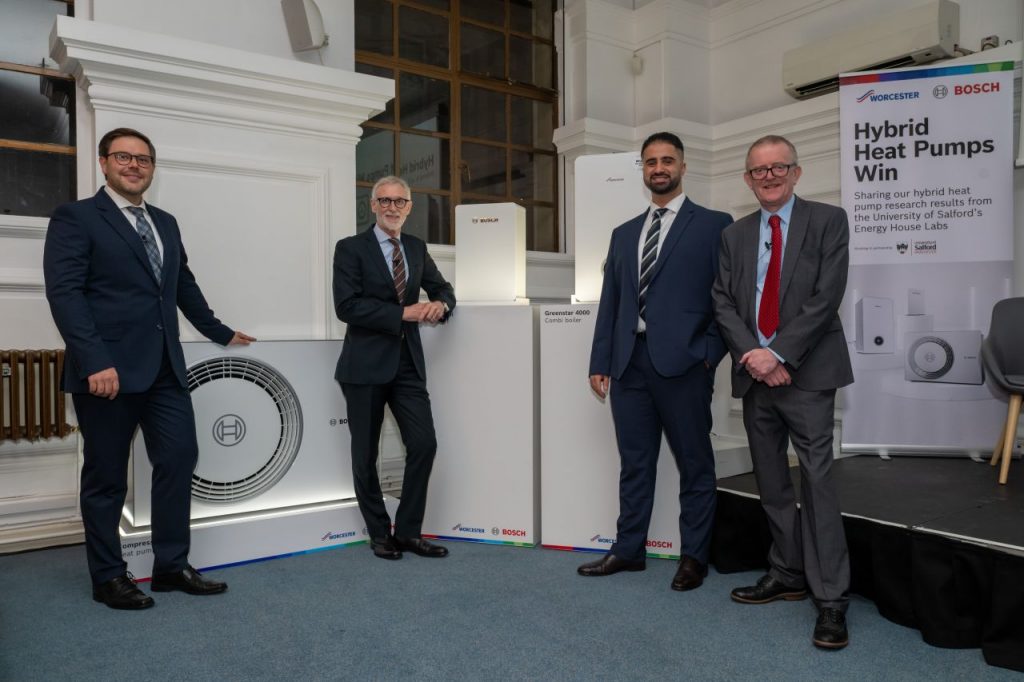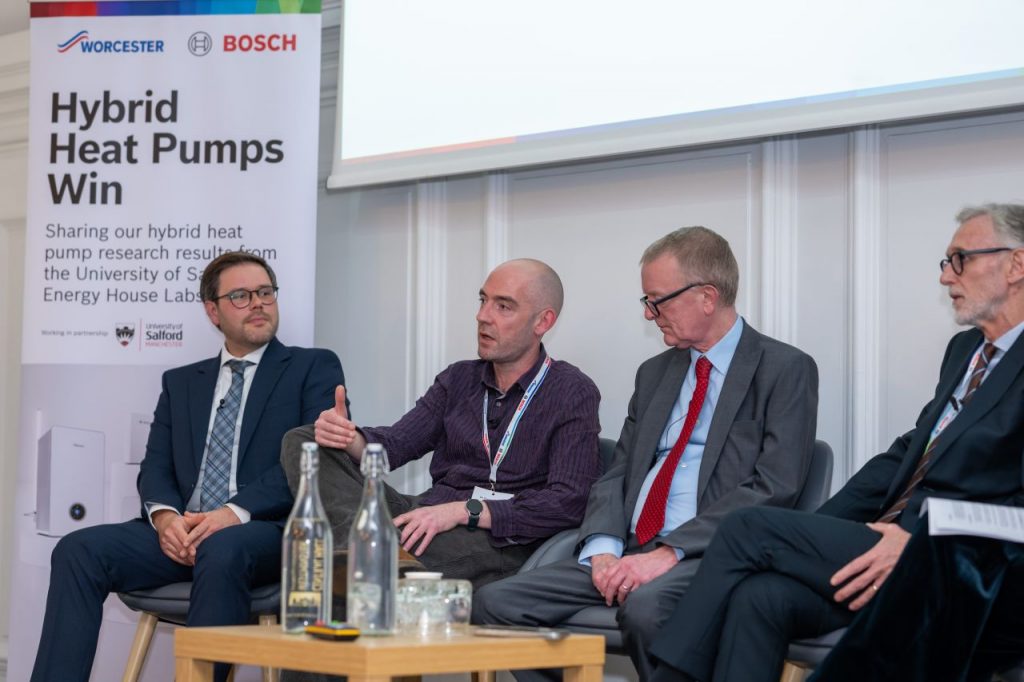Energy House Labs recently collaborated with Worcester Bosch to test their CS5800i Hybrid Heat Pump system, a first-of-its-kind trial designed to understand how hybrid technologies can reduce UK carbon emissions. The testing was overseen by David Farmer, Research Fellow and Manager of Energy House 1.
Hybrid systems combine two established technologies, an air source heat pump and a gas combination boiler, with a control unit that manages the operation of these technologies depending on outdoor conditions and prioritisation of energy cost and/or heat pump contribution*.
Test Conditions
The trial took place at the Energy House 1 test facility, a replica pre-1919 solid wall end-terrace house constructed within an environmental chamber. The aim of this study was to assess the hybrid system’s performance across the range of outside temperatures experienced throughout the UK heating season. The hybrid system was installed without changing radiators or fitting a hot water cylinder, which would usually be the case for a standalone air source heat pump installation.
Key objectives included measuring:
• Whether the hybrid system can provide similar heating to a standalone gas boiler.
• The impact of domestic hot water production on internal temperatures.
• How much space heating can be provided by the hybrid system’s air source heat pump.
Findings
The Worcester Bosch CS5800i Hybrid system demonstrated:
• Similar internal conditions to a standalone gas boiler during cold winter conditions.
• The capability of the air source heat pump to provide the majority of space heating during winter.
• Simultaneous use of the air source heat pump and gas boiler during cold winter conditions and no gas use during warmer outside temperatures.
Use of the boiler to provide domestic hot water reduced the impact of its production on internal temperatures.
The findings were used by Worcester Bosch to model annual hybrid heat pump system performance for a “hard-to-treat” solid wall Victorian end-terrace dwelling similar to the Energy House. Worcester Bosch’s analysis of the test data supports their position that hybrid systems are an essential stepping-stone toward the UK’s 2050 Net Zero target, providing an achievable pathway for homeowners while leveraging existing gas infrastructure.
Collaboration and Impact
This trial formed part of Worcester Bosch’s wider Hybrid Heat Pumps Win campaign, with results presented to policymakers, MPs, and industry stakeholders. The work carried out at our Energy House 1 provided robust, data-driven insights into hybrid performance under repeatable, real-world conditions, reinforcing the role of laboratory-based validation in guiding heating policy and innovation.
Learn More
You can download Worcester Bosch’s full whitepaper, Hybrid Heat Pumps Win: Contributing to achieving the UK climate targets, which details the results of the trial, here:
The Energy House Labs Test Report can be downloaded here:


*The hybrid control strategy tested prioritised use of the heat pump, so heat pump contribution may be lower if the system was programmed to minimise energy cost. However, a reduction in the electricity-to-gas price ratio (spark gap), or use alongside a specialist heat pump tariff, could result in the heat pump prioritisation strategy also being the most cost effective control strategy.